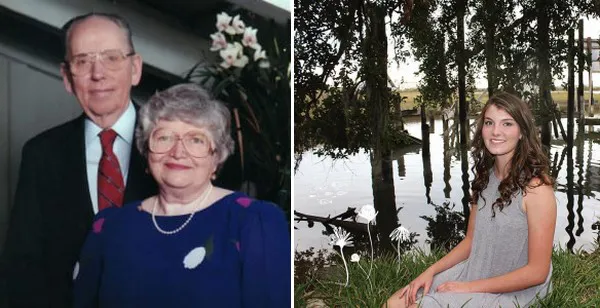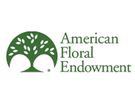They say Christmas comes but once a year, but undergraduate students interested in floriculture crop production have two opportunities each year to apply for a paid internship with a leading greenhouse operation and gain valuable hands-on experience in our industry. Applications for the American Floral Endowment’s Vic and Margaret Ball Internship Scholarship Program are due March 1 and October 1 each year. This program follows through on Vic and Margaret Ball’s vision to support opportunities for floriculture production students to learn directly from growers. The Balls wanted to give students access to opportunities they may not otherwise have, providing first-rate experiences in nationally renowned production facilities that may not be possible without financial support. The Vic and Margaret Ball Internship Scholarship Program is one of the best opportunities available in the floriculture industry, not only benefit the student interns but also their faculty advisors and the businesses that host them.
by Christopher J. Currey and Kimberly A. Williams
About the program
The Vic and Margaret Ball Internship Scholarship program provides a scholarship in addition to a paid internship at a commercial floriculture producer. Students can apply for 3-, 4-, or 6- month internships and be awarded a $1500, $4000, or $6000 scholarship at the completion of their experience. Student applicants are asked to list their preferred locations for their internship; however, they must be willing to work outside of their home state. Two application deadlines during the year–March 1 and October 1—provide flexibility for students to fit the Ball internship into their degree program. Once students are notified of their selection, they have one year to begin their internship. AFE personnel assist students in finding a placement, providing a bridge between students and production operations to locate ideal opportunities. Following the completion of their internship, students must also be returning to school to finish their degree, as this program is meant to be experienced during their education and not after it.

To apply, students fill out a simple online application and submit a personal statement and academic transcripts, and a letter of recommendation is submitted separately by their academic advisor or faculty member with whom they work closely. Applications are reviewed and ranked by a committee consisting of industry, university faculty, a representative of the Ball family, and AFE personnel on factors including student motivation, extracurricular involvement, grade point average, letter of recommendation, and work history. It should be noted that students with less work experience in floriculture production receive higher scores in that category, as a goal of this program is to support industry experiences of those who have not yet had them.
Why it is good for students
This internship-scholarship benefits undergraduate students in many ways. First and foremost, the program facilitates student work experiences in some of the premier floriculture production facilities around the country that they may not otherwise be able to access. The additional financial support assists with travel and moving expenses. During their internship experiences, students receive tremendous opportunities for professional growth and development by gaining experiences that cannot be taught in the classroom: they learn about the distribution chain and importance of logistics; they experience large-scale production facilities with various types of automation; they learn horticulture techniques from expert, seasoned growers; they work alongside employees whose first language is not English, and they get a glimpse of the marketing and sales practices that are necessary for success.
But students don’t just develop professionally. We find that students moving across the country for these internships also experience great personal growth and development by immersing themselves not only in a new position but also a new location and culture. Many of the production facilities that host interns also provide free housing, often with other interns from around the country and world. This adds to the financial benefit of the $1500 to $6000 scholarship paid upon completion of their final report, less a travel advance of $500 that students may have requested.
Aside from the impact on students as individuals, this experience is a great resume builder for young professionals. Not only will they be able to add a new and impactful entry in their list of work experience, but they will also be able to list the receipt of this scholarship as an award that can help further distinguish themselves in the marketplace. Lastly, it is common for students to leave their internship with a standing offer for a job from their internship host once they graduate, as these internships often serve as a proving ground for up-and-coming talent.
Why it is good for advisors/faculty
Faculty advisors of interns also experience several benefits as a result of supporting applicants. First, $1000 is available to the sponsoring faculty member to support an on-site visit to their student at some time during the internship experience. This visit provides several benefits. First, we can bring what we learn on the visit back to our teaching, research, and extension programs, whether it be fresh content and images, potential research ideas, or new solutions to production challenges. Secondly, having the student back in the classroom after their internship enriches the learning atmosphere for the entire cohort because of the experiences they can share. Finally, having a Vic and Margaret Ball Scholarship winner is a way to improve the visibility of academic programs and universities. Ball interns typically reflect well on faculty advisors and their institutions, connecting them to leading businesses in our industry as well as highlighting the industry to administrators within a university. Ultimately, supporting students who participate in this program leads to better-trained professionals that will be poised for success after graduation.
Why it is good for the industry host
Floriculture producers that host Vic and Margaret Ball interns also see benefits from their participation in the program. Like the faculty that support students, participating businesses are helping cultivate the future of our industry by providing impactful and meaningful learning experiences. Vic and Margaret Ball Scholarships are noteworthy accomplishments in which recipients must survive a vetting process, and serving as a host to scholarship winners reflects well on the type of talent your business attracts. We encourage students to treat an internship like an opportunity to interview with a business for which they may be interested in starting a career, and this same advice holds for employers. An internship serves as one of the most thorough job interviews for any potential employee, and the internship can give host businesses the opportunity to extend offers to talented young professionals. Interns are often assigned to be assistant growers, but they may also be tasked with a special project as they rotate through different areas of a production facility. Finally, the opportunity to see your business from the fresh perspective of an outsider can serve to both validate the positive aspects of what you are doing well in addition to shining some light on areas that may benefit from some attention.
How you can support this program
As faculty and industry members, we need to serve as champions for all high-quality floriculture production internships, including the Vic and Margaret Ball Internship Scholarship program. AFE is always looking for more internship host sites. As faculty, the biggest thing you can do is encourage students to apply! Try to share with them the benefits of participating in this program, including the professional, personal, and monetary rewards that would be afforded them. We have seen that once a culture of student participation in the Vic and Margaret Ball Internship Scholarship program develops within a horticulture program, it creates a momentum among greenhouse and floriculture students that sustains a flow of applicants from year to year, as each cohort wants to have the same great opportunities as those before them.
AFE is happy to provide posters and pamphlets to assist in advertising the Vic and Margaret Ball Scholarship program. However, for something a bit more relatable, videos are available at endowment.org/internships that feature former scholarship winners are available to present to students in a production class or Horticulture Club meeting. Finally, if you would like someone to come to your classroom or undergraduate club to deliver a presentation and meet with students to give them a better idea of what this opportunity is all about, just ask!
For more information
American Floral Endowment
T: +1 (703) 838-5211
www.endowment.org
